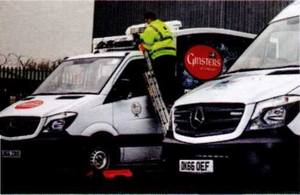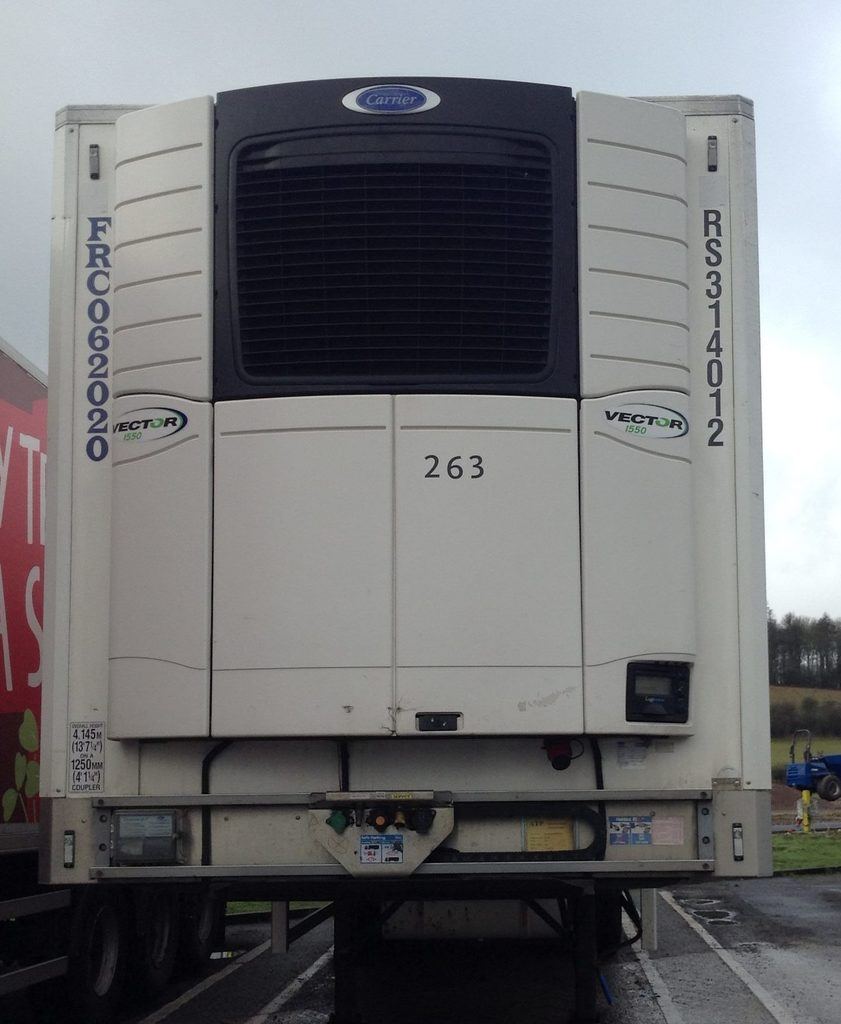Maintaining truck and trailer fridge units has become a lot more challenging in recent years, thanks to the impact of environmental legislation, reports Steve Banner. The European Union's latest regulations on fluorinated greenhouse gases (EU 517/2014), in force since January 2015, means that all refrigeration systems on trucks and trailers must be inspected annually for leaks by an F-gas certified technician, says Carrier Transicold northern Europe managing director Scott Dargan.
More...
The risk of the escape of refrigerant must be minimised because of its global warming potential. "Leak test results must be recorded and traceable," says Thermo King UK sales manager Steve Williams. "If a leak is found, then it has to be fixed, and the system must be re-tested to ensure that it is tight." Ignore leaks and you are driving up your costs as well as breaking regulations and harming the environment, Dargan warns.
Since July 2017, technicians must be qualified to work on refrigeration systems for trucks greater than 3.5 tonnes gvw and on trailers, just as those working on light commercial vehicles are. A certification body is Logic Certification and training suppliers include the Institute of the Motor Industry and https://is.gd/miquli) and ABC {https:// is.gd/viwuqu}.
Carrier Transicold's UK training academy can help trainees obtain a City & Guilds F-gas qualification, which is valid for five years. Its programme has been accredited by the Society of Operations Engineers (the umbrella organisation for the IRTE) as a continuing professional development course.
Many systems still use the now-outmoded R404A gas as a refrigerant, Dargan points out. However, its production is gradually being wound down because it is an HFC hydrofluorocarbon - with a global warming potential of above 2,500 times that of CO2, and the F-gas regulation imposes a reducing limit on the amount of fluorinated greenhouse gas that can be sold in the EU.
So, its price is rising steeply, says Dargan. "It's gone up by 800% since January 2017 and the cost is likely to go stratospheric this year," he predicts. "At present, it's around £60/kg, but it could go to £200. Our systems typically hold 5kg, but there are other systems around that may contain 10kg to 11kg and have an annual leakage rate of around 15% to 20%," he contends. That is a lot of expensive refrigerant to lose.
Dargan says that diesel-powered systems should usually be serviced twice a year - a view shared by Thermo King's Williams. "What we're talking about is one major service that takes three or four hours and one interim service that takes 90 minutes to two hours," he says.
The former is likely to involve changing the oil and filter and replacing drive belts, too, if necessary. The latter is primarily dedicated to checking and adjustment, but both services will include ensuring that there are no refrigerant leaks.
"One thing we advise engineers to do is check the state of the straps that hold the diesel tank in place," remarks Norman Highnam, contracts director at Thermo King dealer Marshall Fleet Solutions.

Jobs such as swapping oil filters can be handled by any suitably trained workshop technician, says Williams, but anything that involves refrigerant should be left to a specialist, he contends.
"General workshop technicians can do some of this work, but it's not really in their mindset," reckons Highnam. "It takes them outside their comfort zone."
A specialist fridge engineer can obtain a lot of information on how the system is performing, and any faults that may have arisen, by interrogating its microprocessors, says Williams. "Remember, too, that you can also look at what has been recorded by the load area's temperature data logger," he adds. Telematics systems also help operators monitor systems, remotely.
"By preference, the truck or trailer should be brought into a workshop, but in the UK this doesn't often happen," Dargan observes. "Instead, the engineer usually has to go out to the vehicle in a service van."
Highnam reports that 98% of Marshall's work is carried out on site, and that this work is increasingly covered by a repair and maintenance agreement.
Site visits may mean working outdoors in an operator's yard, but the vehicle may have to be brought under cover if there is a problem with a refrigerant circuit. "If the ambient temperature isn't above 15°C, then you may get an ingress of moisture," Dargan points out. That can combine with the refrigerant to form an acidic solution that will eat away compressor components.
At the very least, a workshop should have a wheeled gantry available for the engineer to use. Accessing fridge units -nose-mounted units on trailers, for example - can be problematic because of how high they are from the ground.
Falls from height in the workplace can lead to heavy fines for employers, thanks to fresh guidelines introduced by the Sentencing Council on 1 February 2016. That same year saw Volvo fined £900,000 after a technician at one of its dealerships was seriously injured in a fall from a ladder.
NO OPTION
In many cases, the engineer may have no option but to use a ladder and a safety harness, especially in an emergency service when a fridge unit has failed on a fully-laden vehicle. However, they will not be expected to do so if they believe the conditions are unsafe, Dargan stresses. Williams insists: "Nor should major repairs be conducted by a technician up a ladder."
What about cab-top aerofoils, which often used to impede access to nose-mounted units on rigids? Dargan explains that this problem has largely gone away. Now, he says, "they can be tilted so they don't get in the way".
Working at heights is clearly far less of an issue if the engineer is maintaining a 3.5-tonne van with a direct-drive fridge unit. Although they are not powered by their own diesel engine, they too require periodic servicing, says Highnam.
"We're usually talking two visits a year, although some operators try to push it to once a year," he says. "There are fewer long hose runs, so in that respect maintenance is easier, but direct drives can be pernickety because [they are] in effect a very large air-conditioning system."
Other technology developments are further changing the status quo. For example, some of the different and hopefully more environmentally friendly approaches to transport refrigeration are likely to result in changes to maintenance requirements.
For example, powered by a hydraulic pump driven by the truck's engine, fridge systems from Swedish manufacturer Hultsteins, which are available in a variety of configurations, are said to cost 50% less to maintain than its diesel-fired equivalent, with CO2 emissions down by at least 98%.
However, Williams warns that the claims made of new systems always need real-life substantiation. "It's not always easy to know what will happen in practice," he states; a point fleet engineers may care to bear in mind.
FURTHER INFORMATION
Qualification requirements for F-gas technicians (2017) Safe access during plant inspection (SAFed, 2016) - Working at height for mobile plant (SAFed, 2016)

